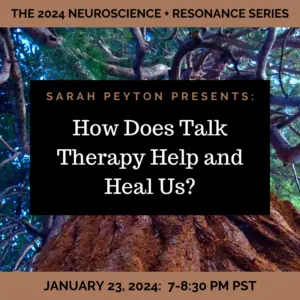Description
As we have learned, people use non-essential food (specifically salt, fat and sugar) to compensate for brain chemistry and to support them in having energy for relationship. The ease of access of this kind of food in our world can lead to disordered eating. In this webinar, we investigate the latest research into food and relational neuroscience, look at some of the paths people take to healing disordered eating, as well as explore leverage points for self-understanding, self-compassion and resonance.




